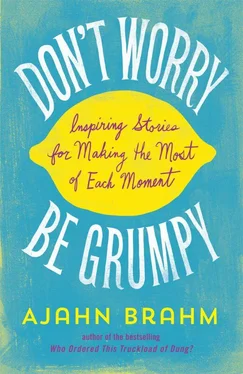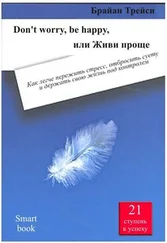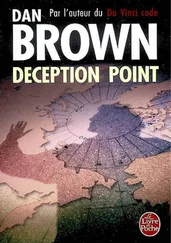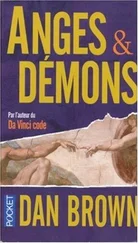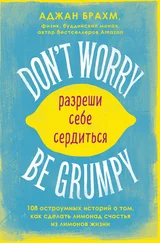I had visited Steve and his wife, Jenny, many times and, honestly, was surprised that he hadn’t passed away yet. He was suffering. Why was he hanging on?
I turned away from Steve, faced Jenny, and asked her, “Have you given Steve permission to die?”
What followed was one of those tingling moments in life that you feel forever privileged to have watched. Without giving me a reply, Jenny crawled up upon the bed, put her arms tenderly around her frail and emaciated husband, and told the man she loved to bits, “Steve, I give you permission to die. It’s all right Steve. You can go.” They hugged and cried. Less than two days later, Steve was dead.
Often I have to take aside the friends and relations of someone close to death and suggest that they give to the one they love so much one of love’s greatest gifts: permission to die . That gift of freedom may only be given in your own time and in your own way. It is the gift that finally sets your loved ones free.
A Buddhist monk received a call from a lay member of his temple.
“Would you please come to my house today to perform a blessing?” the caller asked.
“I’m sorry,” replied the monk, “I can’t come because I’m busy.”
“What are you doing?” inquired the caller.
“Nothing,” replied the monk. “That is what monks are supposed to be doing.”
“Okay,” said the caller and hung up.
The lay Buddhist called again the following day. “Would you please come to my house today to perform a blessing?”
“I’m sorry,” replied the monk, “I can’t come because I’m busy.”
“What are you doing?” asked the caller.
“Nothing,” replied the monk.
“But that was what you were doing yesterday!” the caller complained.
“Yes,” replied the monk, “but I’m not finished yet.”
Every year, Buddhist monks of my tradition stop traveling and stay in one place for the three-month “rains retreat.”
An old wandering monk arrived at the door of a poor farmer’s cottage a few days before the start of the rains retreat. The husband, though poor, was a devout Buddhist and, having offered the monk some food, asked the monk to stay nearby for the retreat.
“I can build a simple hut for you, Venerable Sir, in a quiet meadow next to the river, and my wife will be happy to provide you with food. All that we ask is for you to teach us and guide us in meditation from time to time.”
The old monk agreed.
Over the next three months, the farmer, his wife, and even their children got to love that wise and kindly old monk. So much so that at the end of the rains retreat, when the old monk told them he was leaving, the whole family cried and begged the old monk to stay.
“I cannot stay any longer,” said the old monk. “However, because you have looked after me so well, I want to help you in return. A few days ago, in a very deep meditation, I saw that there is a huge treasure buried nearby. I want you to have it. Please listen carefully, follow my instructions, and you will never be poor again.”
The whole family stopped crying. They listened intently. They believed that monk, because old monks don’t lie.
“Stand at the threshold of your little cottage at dawn. Take up your bow and one arrow. Point the bow in the direction of the rising sun, and when the sun appears over the horizon, let the arrow fly. Where the arrow falls, there you will find the treasure.”
The old monk left that evening. The following morning, the whole family was so excited that they were up well before dawn. The farmer stood at the threshold of his cottage with his bow and one arrow. His wife was carrying the spade. The sun, it seemed that morning, took forever to rise above the horizon, but when it finally rose, the farmer shot the arrow in the direction of the sun, and they all ran after it. When they reached the place where it fell, he told his wife to dig a hole. Deeper and deeper, she dug.
What did she find? Nothing! Only trouble! The arrow had landed in a field belonging to a rich man, and he caught them red-handed.
“You can’t dig a hole in other people’s property!” shouted the rich man at the poor wife. “I’ll sue you! I’ll send you straight to jail!”
“It’s his fault,” pleaded the wife, pointing to her husband. “He told me to dig here.”
“It’s the old monk’s fault,” said the husband. “He promised that we would find a treasure here.”
“Old monk?” queried the rich man. “Well, old monks don’t lie. What did he say to you?”
“Stand at the threshold of your little cottage at dawn. Take up your bow and one arrow. Point the bow in the direction of the rising sun, and when the sun appears over the horizon, let the arrow fly. Where the arrow falls, there you will find the treasure.”
Having been told the old monk’s instructions, the rich man exclaimed, “Oh, I know where you’ve gone wrong! Look at yourself, farmer. You’re so poorly fed that you’re too weak to shoot an arrow properly. I’ll make a deal with you. Tomorrow, I will shoot the arrow from your cottage and, when we find the treasure, we’ll split it fifty-fifty.”
The farmer had little choice but to agree. So the following morning the rich man was holding the bow and arrow at the threshold, waiting for the sun to rise, and the husband was holding the spade. (It was his karma to dig today because he had made his wife dig yesterday!) When the sun appeared over the horizon, the rich man shot the arrow. It went much farther. They all ran after the arrow and, where it landed, the husband dug a big hole.
What did he find? Nothing! Only more trouble! The arrow had landed in a plot of land belonging to a general, and he captured them.
“You can’t destroy my land!” screamed the general. “I’ll order my soldiers to cut off your heads!”
“It’s his fault,” pleaded the farmer, pointing to the rich man. “He told me to dig here.”
“It’s the old monk’s fault,” said the rich man. “He promised that we would find a treasure here.”
“Old monk?” queried the general. “Well, old monks don’t lie. What did he say to you?”
“Stand at the threshold of your little cottage at dawn. Take up your bow and one arrow. Point the bow in the direction of the rising sun, and when the sun appears over the horizon, let the arrow fly. Where the arrow falls, there you will find the treasure.”
Having listened to the old monk’s instructions, the general declared, “Oh, I know where you’ve all gone wrong! What does a civilian know about shooting an arrow? Only a trained soldier like me can use a bow. I’ll make a deal with you. Tomorrow, I’ll shoot the arrow from your cottage, and when we find the treasure, we’ll split it evenly three ways.”
So the following morning the general was holding the bow and arrow at the threshold, waiting for the sun to rise, and the rich man was holding the spade. It was his karma to dig today. When the sun appeared over the horizon, the general expertly shot the arrow. It went a very long way. They all ran after the arrow, and where it landed, the rich man had to dig a big hole.
What did he find? Nothing! Only more trouble! The arrow had landed in the garden of the royal palace, and the king’s guards arrested all of them. Soon they were brought bound in chains before the king.
“It is a capital offence to destroy the royal garden,” said the king. “What is the meaning of this?”
“It’s his fault, Sire,” said the general, pointing to the rich man.
“It’s his fault, Your Majesty,” said the rich man, pointing to the farmer.
“It’s that old monk’s fault, Your Highness,” pleaded the farmer. “He said that we would find a treasure.”
Читать дальше
